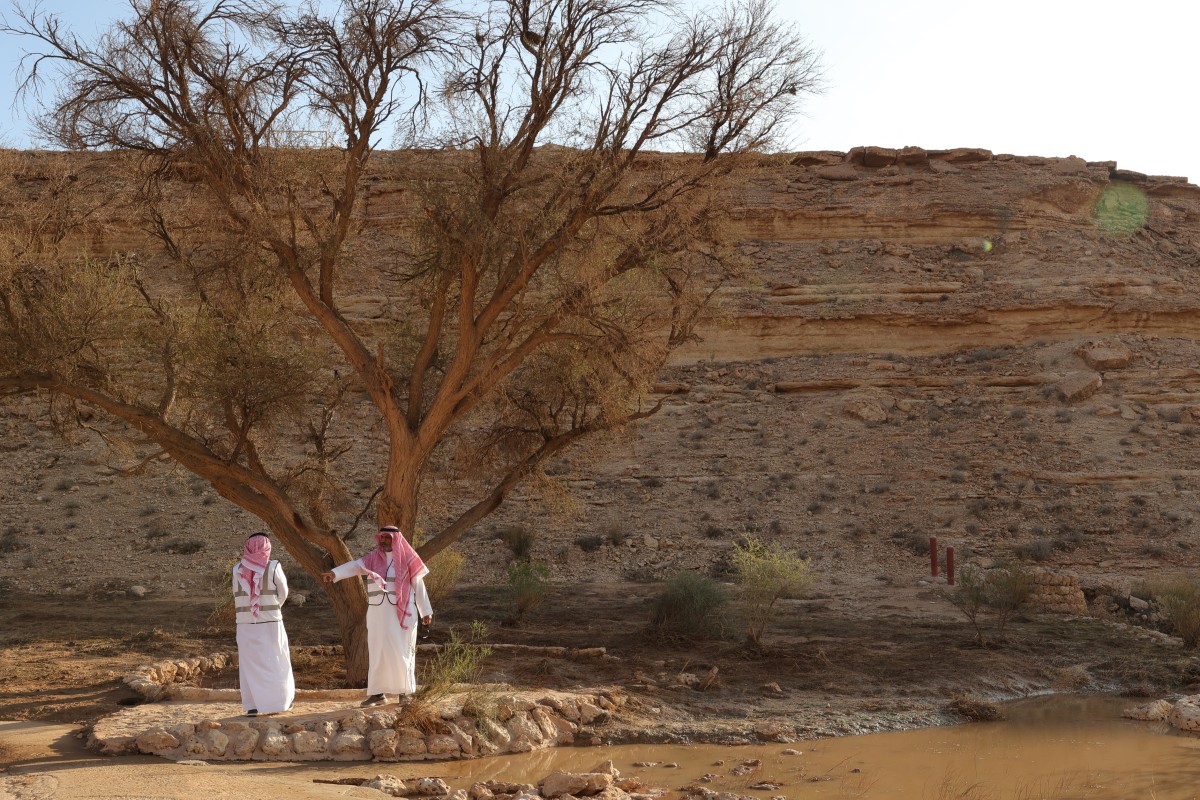Riyadh, Saudi Arabia- UN talks aimed at halting the degradation and desertification of vast swathes of land start in Saudi Arabia on Monday after scientists fired a stark warning over unsustainable farming and deforestation.
UN Secretary-General Antonio Guterres has called it a “moonshot moment”: a 12-day meeting for the United Nations Convention to Combat Desertification (UNCCD), looking to protect and restore land and respond to drought amid the onslaught of climate change.
The last such meeting, or “Conference of the Parties” (COP) to the convention, held in Ivory Coast in 2022, produced a commitment to “accelerating the restoration of one billion hectares of degraded land by 2030”.
But the UNCCD, which brings together 196 countries and the European Union, now says 1.5 billion hectares (3.7 billion acres) must be restored by decade’s end to combat crises including escalating droughts.
A day before the talks in Saudi Arabia, home to one of the world’s biggest deserts, a new UN report warned that forest loss and degraded soils were reducing resilience to climate change and biodiversity loss.
“If we fail to acknowledge the pivotal role of land and take appropriate action, the consequences will ripple through every aspect of life and extend well into the future, intensifying difficulties for future generations,” UNCCD Executive Secretary Ibrahim Thiaw said in the report.
Land degradation disrupts ecosystems and makes land less productive for agriculture, leading to food shortages and spurring migration.
Land is considered degraded when its productivity has been harmed by human activities like pollution or deforestation. Desertification is an extreme form of degradation.
‘We are a desert country’
Activists accused Saudi Arabia, the world’s biggest oil exporter, of trying to water down calls to phase out fossil fuels at last month’s COP29 UN climate talks in Azerbaijan.
However, desertification is a perennial issue for the arid kingdom.
“We are a desert country. We are exposed to the harshest mode of land degradation, which is desertification,” deputy environment minister Osama Faqeeha told AFP.
“Our land is arid. Our rainfall is very little. And this is the reality. And we have been dealing with this for centuries.”
Saudi Arabia is aiming to restore 40 million hectares of degraded land, Faqeeha told AFP, without specifying a timeline. He said Riyadh anticipated restoring “several million hectares of land” by 2030.
So far 240,000 hectares have been recovered using measures including a ban on illegal logging and expanding the number of national parks from 19 in 2016 to more than 500, Faqeeha said.
Other ways to restore land include planting trees, crop rotation, managing grazing and restoring wetlands.
UNCCD executive secretary Thiaw told AFP he hoped the talks would result in an agreement to accelerate land restoration and develop a “proactive” approach to droughts.
“We have already lost 40 percent of our land and our soils,” Thiaw said.
“Global security is really at stake, and you see it all over the world. Not only in Africa, not only in the Middle East.”
‘COP charade’
Thousands of delegates have registered to attend the December 2-13 COP16 talks in Riyadh, including “close to 100” government ministers, Thiaw said.
The event starts just days after the separate COP29 climate talks in Azerbaijan came to a contentious end, as a pledge of $300 billion to help poorer countries transition to cleaner energy was slammed as too low by developing nations.
Matthew Archer, assistant professor in the Department of Society Studies at Maastricht University and author of “Unsustainable: Measurement, Reporting and the Limits of Corporate Sustainability”, was dismissive of the desertification talks.
They are part of the “COP charade (that) is totally incapable of facilitating the kind of political action that might sufficiently address the socioecological crises we are facing”, he told AFP.
“I wouldn’t hold my breath for COP16 to yield a tenable solution to desertification,” added Archer.







